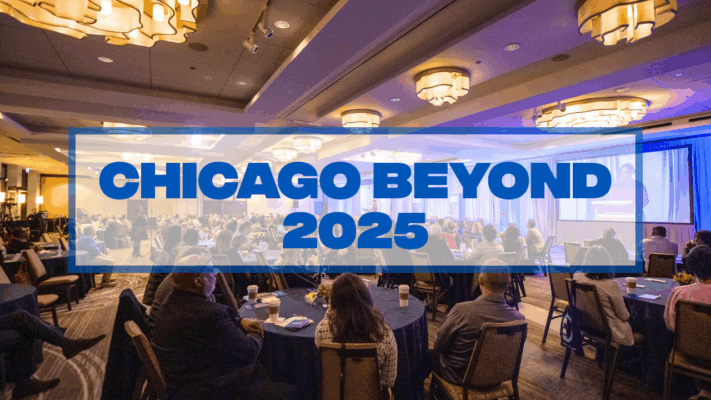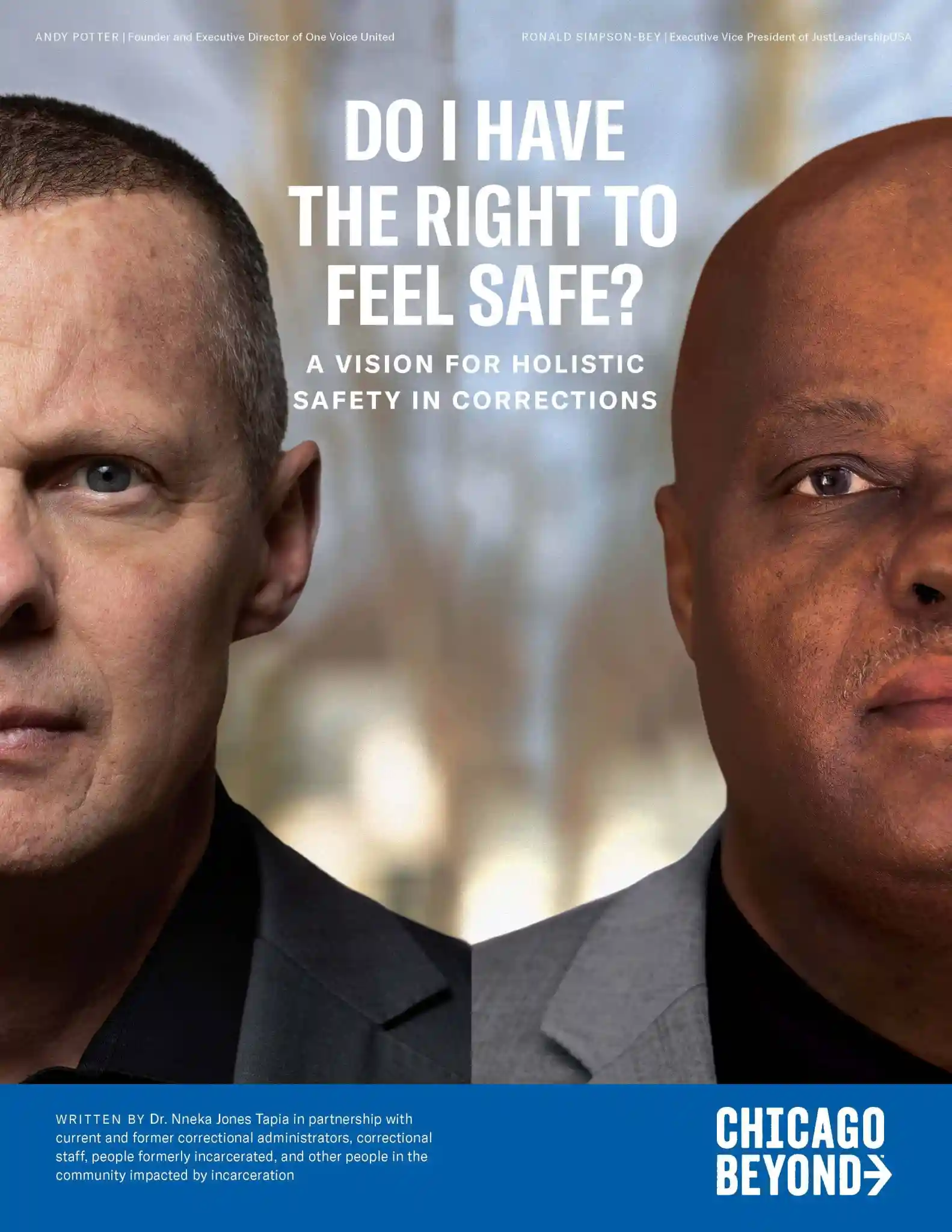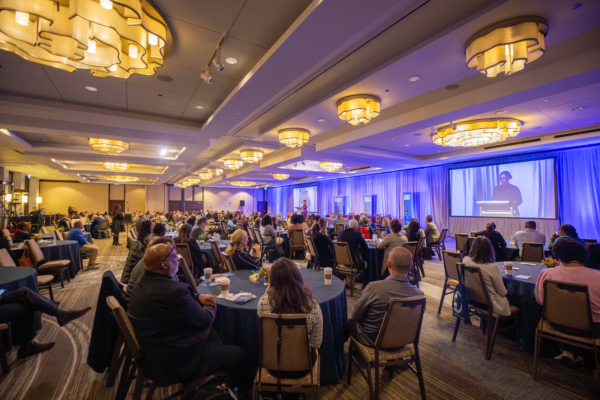
December 19, 2025
Chicago Beyond 2025 Recap
2025: Proximity Leads From health to justice, Chicago Beyond invests in people closest to the issues and driving change all across the country. This year,
Read More
Spearheaded by Chicago Beyond Managing Director of Justice Initiatives, Dr. Nneka Jones Tapia, a clinical psychologist who formerly served as the warden of Cook County Jail
CHICAGO – Chicago Beyond, an impact investor that works to ensure all young people have the opportunity to live a free and full life, today released Do I Have the Right to Feel Safe? A Vision for Holistic Safety in Corrections. The publication provides guidance for correctional administrators, and other stakeholders in the criminal legal system, to shift the vision of safety from one predicated on control to one that creates the conditions for community members – inside and outside of correctional walls – to feel and be protected, resilient, and whole.
Violence and traumatization have been enduring characteristics of American correctional facilities, impacting not only the 1.9M people currently incarcerated and over 400,000 correctional staff members, but also silent victims like the 2.7M children with parents currently incarcerated and the nearly 113 million US adults who have had an immediate family member incarcerated. Between 2019 and 2020, prison deaths increased 46%, which doesn’t take into account COVID-19 related deaths that became more widespread throughout the pandemic. Correctional staff are leaving their posts in record numbers due to the mental and emotional toll. Do I Have the Right to Feel Safe? comes at a moment when the system is at a point of reckoning, a moment where our age-old problems desperately need new solutions.
Chicago Beyond, along with other progressive organizations in the criminal legal reform space, recognize that this kind of trauma cannot continue. The newly released vision aims to help correctional administrators within the system reimagine what safety can be and offers a framework built on five core tenets – health, connectedness, value, trust, and personal agency – to guide correctional administrators in making the necessary training, policy, procedure, and culture changes needed for results. Moreover, it stresses that these changes – and the process used to create and implement them – must empower people with lived experience in the system.
“The key to system-wide reform is to uplift the lived experience of those who currently operate within the system. If people who work and are detained within the system never have a true seat at the table, we’ll never holistically meet the needs of individuals and produce a safer environment,” said Liz Dozier, Founder and CEO of Chicago Beyond. “Do I Have the Right to Feel Safe? provides a unique opportunity for those currently leading the system to take a step back, listen, and adjust.”
Do I Have the Right to Feel Safe? is groundbreaking in that it was created alongside and has been endorsed by leading – and occasionally divergent – grassroots movements championed by people with lived experience in the criminal legal system: Correctional officers (One Voice United), people formerly incarcerated (JustLeadershipUSA), and survivors of crime (National Center for Victims of Crime). The work is the culmination of hundreds of conversations with the aforementioned groups as well as current and former correctional administrators, community leaders, researchers, academics, lawmakers, policymakers, funders, and advocates.
John Wetzel, former Secretary of Corrections in Pennsylvania, recognized the power of this collective input. “The fate of people connected to the corrections system – those who live there, those who work there, and those who love and care for them – are inextricably linked. It’s amazing to see someone seek to build off the strengths created by this symbiosis rather than accentuating the differences. Clearly this is the only path to holistic safety,” he said.
Other leading correctional administrators have also endorsed the work including Kevin Kempf, (Executive Director of the Correctional Leaders Association and former Director of the Idaho Department of Correction), Scott Semple (former Commissioner of the Connecticut Department of Correction), and Vincent Schiraldi (former Commissioner of the New York City Department of Corrections).
Do I Have the Right to Feel Safe challenges:
The concept of holistic safety began to take shape in mid-2019 when Chicago Beyond helped pilot trauma-informed, contact visitation in Cook County jail alongside the Cook County Sheriff’s Office, Chicago Children’s Museum, and the Center for Childhood Resilience in order to help children better connect with their incarcerated parents. The trauma-informed model is now offered to all 60,000 people who are admitted to the jail each year. When Chicago Beyond decided to launch their Justice Initiatives, a commitment to thinking critically about justice and how to support healing within communities impacted by the trauma that stems from incarceration, this vision was imagined to be the first step in getting leaders across the country to champion this type of change. Dr. Nneka Jones Tapia, current Managing Director of Justice Initiatives for Chicago Beyond and a clinical psychologist, believes that America’s criminal legal institutions are long overdue in providing an alternative approach to justice that centers humanity and dignity. Before joining Chicago Beyond in 2018, Dr. Jones Tapia served as the first clinical psychologist warden of Cook County Jail.
“I have experienced and witnessed the sheer amount of harm produced by correctional institutions and have seen how these harms impact all communities, particularly people incarcerated and correctional staff,” said Dr. Nneka Jones Tapia of Chicago Beyond. “The ‘us vs. them’’ culture instilled by the current system distracts both groups from their shared overexposure to violence and trauma as well as their mutual lack of opportunities to substantively heal and utilize their voice to drive meaningful reform. We must align these two groups in their shared goals, prioritize the individual lived experience and center healing. It is the only way we’ll be able to reimagine a system that was created to inflict pain and punishment.”
Chicago Beyond will be hosting a virtual event on May 24th, 2022 to discuss the rollout of Do I Have the Right to Feel Safe?, ways to increase holistic safety in and outside of correctional walls, and pathways for the future of criminal justice reform. To reserve your spot, click here.
To download Do I Have the Right to Feel Safe?, click here.

December 19, 2025
2025: Proximity Leads From health to justice, Chicago Beyond invests in people closest to the issues and driving change all across the country. This year,
Read More
December 1, 2025
National philanthropic organization Chicago Beyond hosted its second National Justice Convening Oct. 29-30 in Chicago. The gathering aimed to improve safet
Read More
November 7, 2025
At its second National Justice Convening, Chicago Beyond, a national philanthropic organization addressing systemic inequity by backing solutions led by t
Read More01
02
03
01
02
03